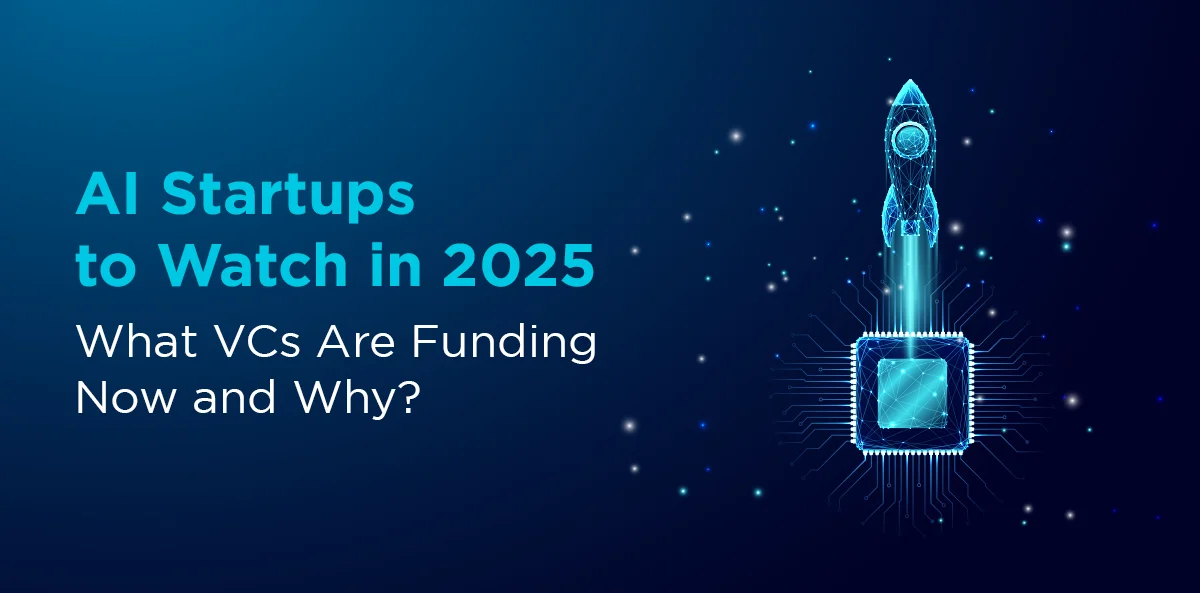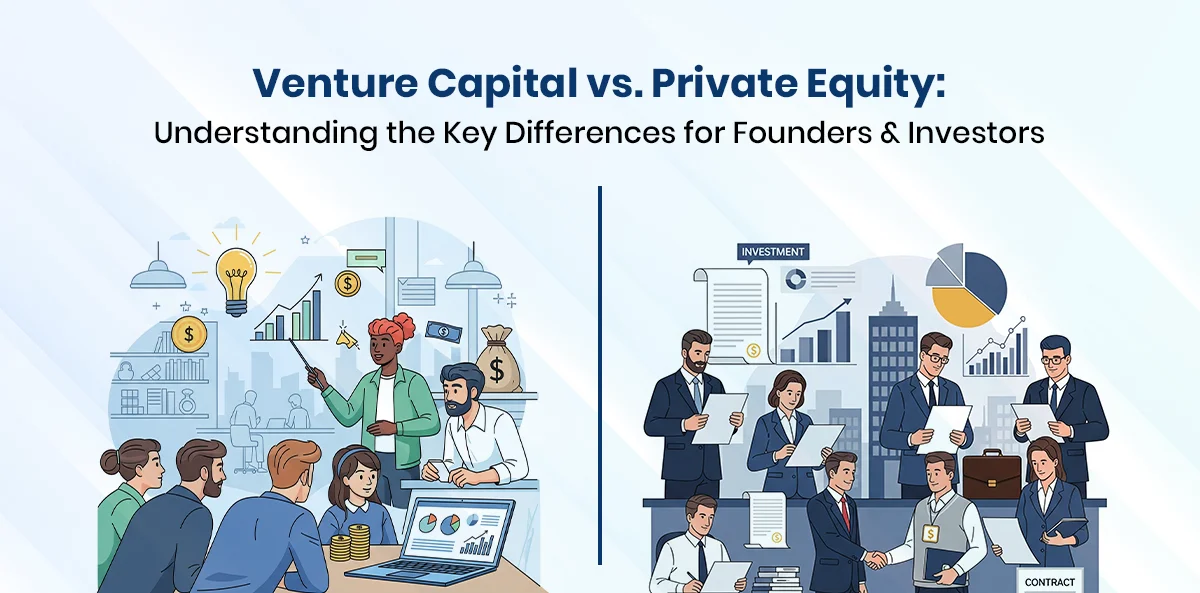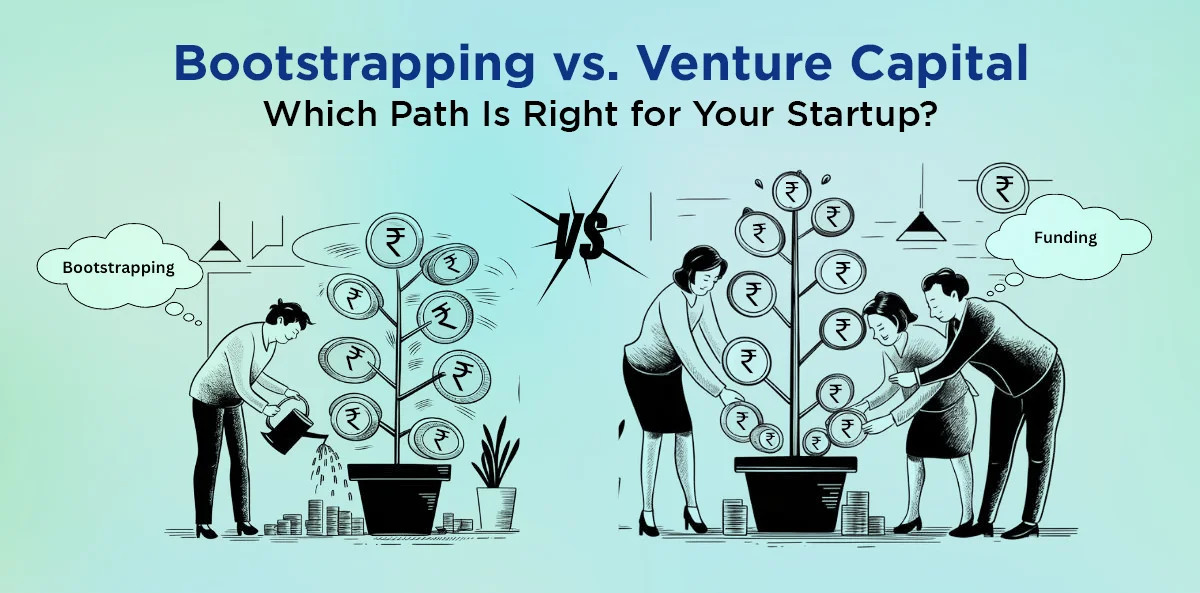Artificial Intelligence isn’t just a buzzword anymore; it’s the engine driving the next wave of technological evolution, and venture capital is the fuel. As we navigate 2025, the AI startup ecosystem is pulsating with unprecedented energy. While the initial frenzy might have slightly cooled, the underlying investment thesis remains robust. Investors are no longer just chasing algorithms; they’re actively backing AI startups 2025 that demonstrate clear paths to solving tangible, real-world problems with scalable, defensible technology.
The conversation has shifted from pure potential to proven application. From groundbreaking generative AI models that create content and code, to sophisticated satellite-powered analytics predicting crop yields, the scope of AI’s impact is vast and growing. This dynamic landscape is attracting significant attention from global venture capital for AI, with established firms and emerging players alike seeking the next generation of category-defining companies. Notably, venture capital companies in India are increasingly playing a pivotal role, fostering a vibrant domestic AI ecosystem alongside global giants. This isn’t just about funding innovation; it’s about strategically investing in the infrastructure of the future economy.
Why AI Remains a Dominant VC Magnet in 2025: The Enduring Appeal
Despite market fluctuations and talk of economic headwinds, AI continues to command a significant share of venture capital attention. Several factors contribute to its enduring magnetism:
- Cross-Industry Disruption at Scale: AI is not a vertical; it’s a horizontal enabler, fundamentally reshaping operations across virtually every sector.
- Healthcare: AI is accelerating drug discovery, personalizing treatment plans, improving diagnostic accuracy through medical image analysis, and optimizing hospital operations. VCs see potential for massive efficiency gains and improved patient outcomes.
- Logistics & Supply Chain: From optimizing delivery routes and predicting demand to automating warehouse operations with robotics and managing inventory with predictive analytics, AI is streamlining complex global networks. The ROI potential in reducing costs and improving resilience is immense.
- Finance (Fintech): AI algorithms are powering fraud detection systems, algorithmic trading platforms, personalized financial advice (robo-advisors), automated underwriting, and enhanced customer service through chatbots. Regulatory tech (RegTech) using AI is also a burgeoning field.
- Legal Tech: AI is automating document review, contract analysis, legal research, and even predicting case outcomes, freeing up legal professionals for higher-value strategic tasks. Startups like Solve Intelligence (mentioned later) exemplify this trend.
- Agriculture (AgriTech): Precision agriculture leverages AI for crop monitoring via drones and satellites, predicting yields, optimizing irrigation and fertilization, and detecting diseases early, leading to increased sustainability and food security.
- Continuous Emerging Breakthroughs: The pace of AI innovation remains incredibly high, constantly opening new investment avenues.
- Generative AI & Large Language Models (LLMs): Beyond chatbots like ChatGPT, generative AI is creating new forms of software development (code generation), marketing content, design prototypes, synthetic data for training other AIs, and personalized education tools. LLMs are becoming foundational platforms upon which countless applications are being built. VCs are investing heavily in both foundational model builders and application-layer companies leveraging these models.
- Real-Time Satellite Analytics & Geospatial AI: Advances in satellite technology (like Albedo’s approach) coupled with AI are unlocking unprecedented insights from Earth observation data. This impacts climate change monitoring, resource management, infrastructure planning, disaster response, and defense intelligence. The ability to generate predictive insights from this data is a key focus for VC funding trends.
- AI in Robotics and Autonomous Systems: From manufacturing floors and warehouses to autonomous vehicles and delivery drones, AI is the brain enabling increasing levels of automation and autonomy.
- Sustained VC Appetite & Maturing Investment Strategies: While early-stage funding saw astronomical valuations in previous years, the current climate reflects a more mature approach. VCs are still deploying massive amounts of capital into AI, but with a greater emphasis on substance. Record-setting funding rounds continue, especially for companies demonstrating strong traction or building foundational technologies. The focus is shifting towards “AI-first” companies where AI is core to the value proposition, rather than simply “AI-enabled” features tacked onto existing products. AI innovation 2025 is characterized by this blend of breakthrough potential and practical application.
- Demand for Market-Ready, Revenue-Generating Solutions: The era of funding pure research projects is largely over for mainstream VCs. Investors now prioritize top artificial intelligence startups that have moved beyond the lab and can demonstrate clear use cases, customer adoption, and ideally, revenue generation. Product-market fit (PMF) is paramount. VCs want to see evidence that customers are willing to pay for the AI-powered solution and that the startup can acquire and retain these customers efficiently. This focus on tangible results aligns with the broader shift towards sustainable growth in the startup ecosystem.
Top AI Startups Capturing VC Attention in 2025
The AI landscape is vast, but certain startups are generating significant buzz and attracting substantial funding. Here are five examples that highlight the diverse applications and investment theses currently in play:
- Thinking Machines Lab – Bridging the Gap Between Human Intuition and AI Power
- The Pitch: Founded by Mira Murati, whose experience at OpenAI lends immense credibility, Thinking Machines Lab aims to build AI systems that act as true collaborators for humans in high-stakes, complex decision-making processes. This isn’t about replacing humans, but augmenting their capabilities in areas like defense strategy, complex medical diagnostics, aerospace engineering, and critical infrastructure management.
- Why VCs are Interested: The focus on human-AI collaboration addresses a critical need for trust, interpretability, and control in environments where errors have severe consequences. Combining sophisticated large language models (LLMs) with principles of human factors design (understanding human cognitive limits and capabilities) is a unique and potentially highly valuable approach. While still early stage (Seed target reported at $2 Billion valuation seems ambitious, possibly reflecting intense investor interest or a typo – note: double-check source or add caveat), the vision and leadership pedigree make it a prime target for venture capital for AI.
- Potential Impact: Could redefine how expertise is leveraged in critical industries, leading to safer, faster, and more effective decision-making.
- Qevlar AI – AI as the First Responder in Cybersecurity
- The Pitch: Paris-based Qevlar is tackling the overwhelming complexity and speed required for modern cybersecurity incident response. Their AI platform automates the investigation process, analyzes threat data in real-time, correlates alerts from various security tools, and suggests or even automates remediation actions. This drastically reduces response times and the burden on security teams.
- Why VCs are Interested: The cybersecurity market is enormous and constantly evolving due to increasingly sophisticated threats. Qevlar offers a tangible solution to a major pain point: the shortage of skilled cybersecurity professionals and the deluge of alerts they face. Backed by reputable firms like EQT Ventures and FirstMark, their $14 Million Series A signals strong validation. The goal to double the workforce indicates aggressive growth plans fueled by market demand. This is a classic example of AI providing efficiency and expertise multiplication.
- Potential Impact: Could become a standard tool in Security Operations Centers (SOCs), significantly improving organizational resilience against cyberattacks.
- Solve Intelligence – Drafting the Future of Intellectual Property with AI
- The Pitch: Based in London, Solve Intelligence is automating the intricate and time-consuming process of drafting patents and other intellectual property (IP) documentation. Their AI tools assist legal professionals, ensuring consistency, accuracy, and speed, while potentially uncovering novel connections or prior art. Serving giants like DLA Piper already provides significant market validation.
- Why VCs are Interested: The legal tech market, particularly IP law, involves high-value work that is ripe for AI-driven efficiency gains. Automating drafting saves expensive lawyer hours and potentially reduces errors. The $12 Million funding from Index Ventures and Microsoft’s M12 fund underscores the belief in their specialized AI application. Planned expansion to New York and Singapore shows global ambition in key legal hubs.
- Potential Impact: Could democratize aspects of IP protection and fundamentally change workflows within corporate legal departments and law firms specializing in IP.
- Delos – The AI Copilot for Everyday Corporate Workflows
- The Pitch: Also hailing from Paris, Delos focuses on boosting productivity within large enterprises by injecting AI into everyday office tasks. Think of AI copilots integrated into project management, communication tools, and document creation, using Natural Language Processing (NLP) to understand context, automate routine actions, generate summaries, and streamline collaboration. It aims to be the generative AI layer for corporate workflow.
- The Pitch: Also hailing from Paris, Delos focuses on boosting productivity within large enterprises by injecting AI into everyday office tasks. Think of AI copilots integrated into project management, communication tools, and document creation, using Natural Language Processing (NLP) to understand context, automate routine actions, generate summaries, and streamline collaboration. It aims to be the generative AI layer for corporate workflow.
- Why VCs are Interested: The potential market is massive – essentially every knowledge worker in every large company. While competition exists (e.g., Microsoft Copilot), Delos’s focus on specific enterprise workflows and potentially deeper integrations could carve out a valuable niche. The $2.5 Million seed round led by 20VC suggests early belief in their approach to embedding generative task management deeply into how teams operate.
- Potential Impact: Significant productivity gains across organizations, freeing up employees from mundane tasks to focus on more strategic work.
- Albedo Space – Unveiling Earth’s Details with AI from Very Low Orbit
- The Pitch: Albedo is pioneering the use of very-low Earth orbit (VLEO) satellites capable of capturing optical imagery at an unprecedented 10-centimeter resolution, previously only available to governments. This ultra-high-resolution data, combined with AI analysis, unlocks powerful predictive insights for diverse sectors.
- Why VCs are Interested: Access to significantly better geospatial data opens up entirely new AI applications. Imagine accurately monitoring individual crop health for precision agriculture, detecting minute changes in infrastructure for preventative maintenance in energy, assessing environmental impacts with granular detail, or providing enhanced intelligence for defense and disaster response. The $285 Million valuation reflects the high potential value of this unique data source and the AI built upon it. This is a prime example of AI leveraging a novel data advantage.
- Potential Impact: Revolutionize industries reliant on geospatial intelligence, providing ground truth data at a scale and clarity never before commercially available.
The VC Lens: How Investors Are Evaluating AI Startups in 2025
The days of funding any startup with “AI” in its name are gone. VCs are applying rigorous scrutiny. Here’s what they’re looking for in potential VC-backed AI startups:
- Exceptional Founding Team: Beyond strong AI/ML technical chops, VCs look for a balanced team with deep domain expertise in the problem area they’re tackling, proven execution ability, business acumen, and ideally, prior startup experience. Can they not only build the tech but also build a company, sell the product, and navigate market challenges?
- Demonstrable Product-Market Fit (PMF) & Real-World Application: Does the AI solve a real, significant problem for a specific customer segment? Is there evidence (pilots, early customers, usage data) that customers find value and are willing to pay? VCs want to see validation beyond the theoretical. Metrics like early revenue (ARR/MRR), user growth and engagement, and conversion rates from pilot projects are key indicators. Venture capital for startups increasingly demands this proof.
- Traction and Scalability: What progress has the startup made? This varies by stage – seed stage might focus on a working MVP and early user feedback, while Series A/B requires demonstrable customer acquisition, revenue growth, and a clear plan for scaling the technology and business operations. Can the AI models handle more data and users efficiently? Is the go-to-market strategy scalable?
- Defensibility & Competitive Moat: What prevents competitors from quickly replicating the solution? This could be proprietary datasets, unique algorithms, network effects, strong partnerships, brand recognition, or deep technological expertise. VCs need to believe the startup can build a sustainable competitive advantage.
- Ethical AI, Compliance, and Data Strategy: This is no longer an afterthought. VCs are increasingly assessing how startups approach data privacy (GDPR, CCPA compliance), potential biases in their AI models, transparency, and explainability. A proactive stance on responsible AI development and a clear strategy for ethically sourcing and managing data are crucial for long-term viability and mitigating reputational and regulatory risks. Ignoring this can be a major red flag.
- Clear Business Model & Path to Profitability: How will the startup make money? Is the pricing model clear and aligned with the value delivered? While profitability isn’t expected early on, VCs need to see a credible path towards sustainable unit economics and eventual profitability.
Emerging Markets & Untapped Opportunities: AI Beyond Silicon Valley
While established hubs remain dominant, exciting AI innovation is flourishing globally, presenting unique opportunities for savvy investors.
- India’s AI SaaS Boom: India is rapidly emerging as a powerhouse for AI-driven Software-as-a-Service (SaaS). Key drivers include a vast pool of skilled tech talent, a large and increasingly digitized domestic market, supportive government initiatives, and growing cloud adoption. Venture capital companies in India, both domestic firms and the Indian arms of global VCs, are actively funding B2B AI startups tackling specific Indian challenges and opportunities, particularly in:
- Healthcare AI: Solutions for affordable diagnostics in remote areas, hospital management systems, personalized wellness platforms, and telemedicine enhanced by AI.
- Fintech AI: AI for financial inclusion (credit scoring for the unbanked), fraud prevention tailored to local patterns, hyperlocal insurance products, and conversational AI for customer service in regional languages.
- Retail & E-commerce AI: Personalization engines, supply chain optimization, and vernacular AI interfaces catering to diverse linguistic populations.
- The potential to build AI solutions in India for global markets (“building in India, for the world”) is also a major draw for venture capital for AI.
- Southeast Asia (SEA): With its diverse linguistic landscape and mobile-first economies, SEA is seeing a rise in AI applications focused on:
- Multilingual Voice AI & NLP: Customer service chatbots, voice assistants, and translation services capable of handling the region’s multitude of languages and dialects are in high demand.
- E-commerce & Logistics AI: Optimizing last-mile delivery in complex urban environments and personalizing online shopping experiences for a rapidly growing digital consumer base.
- Africa: While facing infrastructure challenges, Africa presents immense potential for leapfrogging technologies with AI, attracting impact investors and specialized emerging markets VC funds. Key areas include:
- Precision Agriculture: AI-powered insights from satellite or drone data are helping farmers improve yields, manage water resources efficiently, and adapt to climate change – critical for food security.
- Fintech AI: Driving financial inclusion through mobile money platforms, AI-based credit scoring, and fraud detection.
- Healthtech AI: AI tools for remote diagnostics, disease outbreak prediction, and managing healthcare logistics in resource-constrained settings.
Conclusion: The Intelligent Future is Now, and VCs are Placing Their Bets
The AI landscape in 2025 is characterized by a potent mix of groundbreaking innovation and a pragmatic focus on real-world value creation. The top artificial intelligence startups attracting funding are those demonstrating not just technical prowess but also strong business fundamentals, clear market needs, and responsible development practices.
From enhancing human capabilities and securing digital infrastructure to automating complex tasks and gleaning insights from novel data sources, AI’s transformative potential is undeniable. VC funding trends reflect this reality, with investors globally – including increasingly influential venture capital companies in India – strategically backing the companies poised to lead this technological revolution. While the evaluation criteria have become more stringent, the overall appetite for impactful venture capital for AI remains incredibly strong. The intelligent future is being built today, one well-funded, innovative startup at a time.
Partner with the Future of AI: Connect with Navyug Global
At Navyug Global, we don’t just write checks; we build partnerships. We are deeply immersed in the AI revolution and are passionate about supporting founders who are leveraging artificial intelligence to build category-defining companies.
We understand the unique challenges and opportunities within the AI space, from navigating complex data strategies to scaling cutting-edge technologies. We invest primarily in early-stage, tech-first companies with a strong vision, particularly those using AI to disrupt large, established sectors. Our focus aligns perfectly with the trends shaping the AI startups 2025 landscape, including the burgeoning AI startups India scene.
Are you an AI founder building something transformative? Are you seeking more than just capital – a strategic partner dedicated to your long-term success?
We believe in the power of collaboration and are actively seeking the next generation of AI pioneers.



